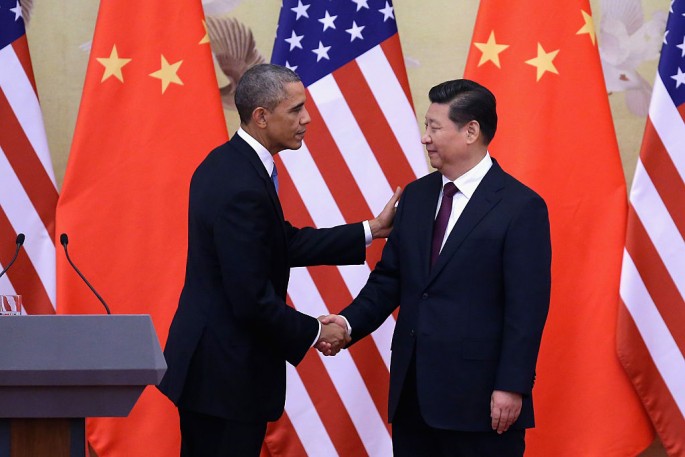Tension between China and the United States continues to simmer ahead of the Shangri-La dialogue organized by the International Institute for Strategic Studies (IISS) which many expect to focus on South China Sea maritime issues.
According to The Wall Street Journal, China is strongly pushing back against the U.S., who criticized the Asian giant for its excessive territorial claims over the South China Sea waters and isles during the dialogue in Shangri-La held from June 3 to 5.
The two nations dealt with the dispute face-to-face in the the Asia Security Summit held in Shangri-La, where at least 20 defense ministers attended, according to the Economic Times.
China Bites Back
In Saturday's report from the Chinese-run news agency Xinhua, China's Foreign Ministry spokesperson Hua Chunying called for the U.S. to stop pointing fingers and make good on their word on the matter of maritime disputes.
"Countries from outside should honor their commitments and not make irresponsible remarks on issues involving territorial sovereignty," Hua said.
According to the outlet, Hua's statement came as a response to American and Japanese Defense Secretaries Ashton Carter and Gen Nakatani's "unreasonable accusations at China."
"We have noted relevant remarks. They were mostly repeating their old tunes, which have no fact in them and are full of groundless accusations against China's legitimate construction activities on relevant islands and reefs," she continued, adding that they put the blame about regional security issues on China when it is "actually the victim."
Meanwhile, deputy chief of general staff of the Chinese People's Liberation Army Admiral Sun Jianguo said that the issue had become overheated due to "provocations of certain countries for their own selfish interests," per CNN.
In the report, he also reiterated China's stand on the international arbitration case filed by the Philippines, stating that the country would not recognize its decision.
"We do not make trouble, but we have no fear of trouble," he said. "China will not bear the consequences, nor will it allow any infringement upon its sovereignty and security interests or stay indifferent to the irresponsible behavior of some countries in and around the South China Sea."
What Happened in Shangri-La
Because of this fuss over the maritime disputes, the dialogue in Shangri-La might become more interesting with all the vested interests on the line.
The Philippines, Malaysia, Brunei and Vietnam are all claiming territories that China says is theirs as well, which the Economic Times believes is due to the significant oil and gas deposits in the region.
With the participation of the U.S., who considers some of China's contesting neighbors as allies, the dialogue became more heated as it turned out to be a dimplomatic version of a tag team wrestling match.



























